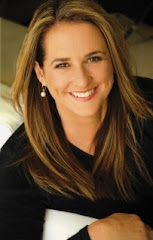"Trouble with Teens" published July 1
When did teenagers become the new hated minority? In a unique sociological twist we’ve stopped turning on people because of their race, religion or sexuality and decided to turn on our own. Our kids.
They are not to be trusted and certainly shouldn't have the right to vote at 16 as proposed by Sue Bradford. Being a teenager is possibly the worst thing you can be because you are certain to become a hoodie wearing P addicted crime machine. Just read the papers.
Society insists that your children have two stages when you will want to hand them over to CYFS. When they are toddlers and when they are teenagers. God forbid you should get through either stage without incident, that’s just not normal. Whoever heard of a toddler who doesn’t have tantrums or a teenager who doesn’t turn sullen, uncommunicative and overindulge in alcohol and drugs? People insist on telling you that parenting teenagers is a minefield. A thankless task which will always end with a visit from the cops in the middle of the night.
And if they’re not destined for a life of crime they’re just so weird and whacky and self obsessed and off this planet. Really? Last time I looked this generation of teenagers is possibly the most well educated, well researched, most likely to have a debate and win type of people. And don’t even start talking about the environment, from the age of 12 these kids have a PhD on the subject.
Because what people over 40 fail to realise is that these kids have the internet. They Google, they You Tube, they My Space, they bebo, they Wikipedia, they chat online, they learn things at a rate only the speed of light could envy. They are little powerhouses of knowledge, even the poor ones. Don’t look now, but the internet is everywhere.
Readers of the NZ Herald need look no further than the College Herald, the outstanding newspaper written by high school kids to realise that on any given edition you will be confronted with opinion, knowledge and facts on everything from nuclear power and world poverty to globalisation. I doubt I even knew what globalisation meant at that age and I was on the debating team and everything.
I was apparently a terrible teenager. Before taking any new man to meet my mother I would have to warn him of two things: She will talk about my teenage years as if I was Carrie reincarnated and she will get out a poem I wrote at 14 and read it out loud in an attempt to mortify me. The last man I took to meet her smiled politely at these revelations, even though he was 38 and had two kids of his own. And I’m pretty sure that poem is still lurking somewhere at the bottom of her handbag to be used at a moment’s notice if I don’t watch my 44-year-old self.
But despite being a little naïve and idealistic teenagers of my generation were generally expected to be good kids and grow up to be valid human beings.
Then somewhere along the line society started saying teenagers were wrong. And so started the self fulfilling prophecy. If you tell any minority they suck, then that’s exactly what they’ll do.
And then we send them out with their self esteem around their ankles into a world where they are being offered more than the dope we smoked. They’re dealing with pharmaceuticals and while parenting guru Ian Grant tells parents to have a zero tolerance policy when it comes to drugs, that advice may have worked in the 18th century when it was still legal to lock your kids up, but surely giving them information and advice is a better course of action.
Even without Ian Grant to guide me on the path of righteousness, and despite my mother’s memory, I wasn’t a terrible teenager. My only crimes were that I left home at 17 to live with my boyfriend and put myself through a journalism course while I worked waitressing at the Hungry Horse Restaurant. And I was a bit lippy. Which I still am.
Today we need to stick up for our teenagers. To tell them that being a teenager is about experimentation, moderation, having the knowledge to make good decisions for themselves and others, that we trust them to make those good decisions and most importantly that we really like having them around. And never, ever leave poems lying around where your mother can find them.


1 comment:
Thank you, Wendyl.
My colleagues and I have been concerned for some time about the intensifying negativity towards young people within New Zealand media. In our view, much of the ‘mainstream’ media’s portrayal of youth tends towards sensationalism and, accordingly, can be misrepresentative or inaccurate.
We fear that the constant negative portrayal of "youth" in the media will inevitably be to the detriment of our communities, as it misinforms the adult community, encourages prejudicial treatment of individual young people and creates the political environment where draconian legislation, such as Ron Mark’s Young Offenders Bill, may flourish.
However, we are encouraged when journalists such as yourself express a sensible view, and we thank you for bucking the trend towards negative stereotyping of our young people.
Kind regards,
Nick Harris
Solicitor
YOUTHLAW
Tino Rangatiratanga Tamariki
Post a Comment